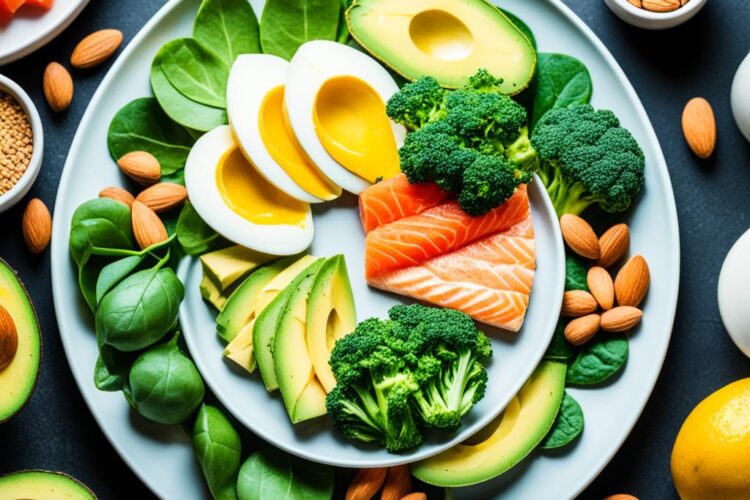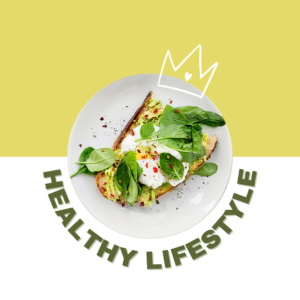Are you looking for a healthy and effective way to lose weight? The keto diet may be just what you need. The ketogenic diet, also known as the keto diet, is a low carb, high fat diet that has gained popularity in recent years. It involves reducing your carbohydrate intake and replacing it with healthy fats, forcing your body to enter a state of ketosis where it burns fat for fuel.
But what sets the keto diet apart from other weight loss approaches? Unlike traditional low calorie or low fat diets, the keto diet focuses on eating high amounts of healthy fats and very few carbohydrates. This unique approach can help you achieve sustainable weight loss while still enjoying delicious and satisfying meals.
In addition to weight loss, the keto diet has shown potential benefits for blood sugar control and may even have positive effects on certain health conditions. However, it's important to approach the keto diet with caution and be aware of the potential risks and considerations.
Key Takeaways:
- The keto diet is a low carb, high fat diet that promotes weight loss.
- By reducing carbohydrate intake and increasing healthy fat consumption, the body enters a state of ketosis, where it burns fat for fuel.
- The keto diet may have potential benefits for blood sugar control and certain health conditions.
- It's important to approach the keto diet with caution and be aware of potential risks and considerations.
- Consult with a healthcare professional before starting the keto diet to ensure it is suitable for you.
What to Eat on the Keto Diet
The cornerstone of the keto diet is eating high fat, low carb foods. This unique approach to eating has gained popularity among those seeking a healthier lifestyle and effective weight loss. By drastically reducing carbohydrate intake and increasing healthy fat consumption, the keto diet puts the body in a state of ketosis, where it burns fat for fuel instead of relying on carbohydrates.
Incorporating a variety of keto-friendly foods into your meals and snacks is key to maintaining this metabolic state and achieving your weight loss goals. Let's take a closer look at the types of foods that are encouraged on the keto diet:
Animal Proteins
Animal proteins play a vital role in the keto lifestyle. They are excellent sources of high-quality protein and essential nutrients. Some popular animal protein options include:
- Seafood: Rich in omega-3 fats, seafood like salmon, mackerel, and sardines are great choices for keto recipes.
- Meat: Opt for lean cuts of beef, pork, and lamb to keep your fat intake in check.
- Poultry: Chicken and turkey are versatile options that can be enjoyed in various keto-friendly dishes.
Dairy Products
Dairy products are not only delicious but also provide a good amount of healthy fats and protein. Some dairy options that fit well into the keto diet include:
- Cheese: Enjoy a variety of cheese types such as cheddar, mozzarella, and goat cheese. They add flavor and richness to your meals.
- Yogurt: Opt for plain Greek yogurt, which is low in carbs and high in protein. Add some berries or nuts for an extra boost of flavor.
- Cream: Heavy cream can be used to add a creamy texture to sauces, soups, and coffee.
Non-Starchy Vegetables
Non-starchy vegetables are a great source of essential vitamins, minerals, and fiber, while also being low in carbs. They add volume and nutrients to your meals. Make sure to include the following vegetables in your keto diet:
- Leafy Greens: Spinach, kale, and Swiss chard are packed with nutrients and can be easily incorporated into salads, stir-fries, and omelets.
- Peppers: Bell peppers and chili peppers are flavorful additions to keto-friendly dishes.
Fats and Oils
Healthy fats and oils are essential for the keto diet, as they provide energy and help you reach your daily fat intake. Some beneficial fats and oils include:
- Avocados: These creamy fruits are packed with heart-healthy fats and fiber.
- Olives and Olive Oil: Choose extra virgin olive oil for its high monounsaturated fat content.
- Coconut Oil: This oil is rich in medium-chain triglycerides (MCTs), which are easily converted into ketones.
Incorporating these foods into your daily meals and snacks will ensure you are getting a well-rounded keto-friendly diet. Experiment with different recipes and find delicious ways to enjoy your favorite ingredients while staying in ketosis. Remember to prioritize nutrient-dense, whole foods to support your overall health and well-being.
Next, we'll discuss the potential risks and considerations of the keto diet, so you can make informed decisions about your health and well-being.
Potential Risks and Considerations of the Keto Diet
While the keto diet has been associated with many health benefits, it's important to be aware of potential risks and considerations. One common side effect of starting the keto diet is the keto flu, which can cause symptoms such as fatigue and dizziness. It's also possible to develop nutrient deficiencies, particularly in calcium, vitamin D, magnesium, and folic acid, if the diet is not carefully planned.
The emphasis on animal fats and proteins in the keto diet may have negative effects on heart health, especially for individuals with existing cardiovascular disease risk factors. People with diabetes should also exercise caution when following the keto diet, as it can potentially cause low blood sugar levels. Additionally, weight cycling and difficulties with long-term adherence are common concerns with this restrictive diet.
“While the keto diet offers potential benefits, it's essential to understand the associated risks and consider individual circumstances.” – Dr. Sarah Johnson, Nutrition Specialist
It's important to approach the keto diet responsibly and monitor for any negative effects. Consulting with a healthcare professional or a registered dietitian can help ensure that the diet is appropriate for your individual needs and goals.
Nutrient Deficiencies
The keto diet restricts many food groups that provide essential nutrients, which can increase the risk of nutrient deficiencies. Key nutrients to monitor include:
- Calcium: Found in dairy products and certain vegetables like broccoli and kale, calcium is crucial for bone health and proper muscle function.
- Vitamin D: Exposure to sunlight and consuming foods like fatty fish and fortified dairy products can help maintain adequate vitamin D levels, which are crucial for bone health and immunity.
- Magnesium: Nuts, seeds, and leafy greens are rich sources of magnesium, an essential mineral involved in metabolic processes and heart health.
- Folic Acid: Foods like leafy greens, legumes, and fortified grains are important sources of folic acid, which supports cell growth and development.
Impact on Heart Health
The keto diet's emphasis on animal fats and proteins may raise concerns about its impact on heart health. High consumption of saturated fats and cholesterol from sources like red meat and full-fat dairy products can increase the risk of heart disease. Individuals with existing cardiovascular disease risk factors, such as high blood pressure or high cholesterol, should consult with a healthcare professional before starting the keto diet.
Caution for Diabetes
People with diabetes should exercise caution when following the keto diet. The significant reduction in carbohydrate intake can lead to low blood sugar levels, especially for those taking medication to manage their condition. It's crucial to monitor blood sugar levels closely and work with a healthcare professional to adjust medication as needed.
Weight Cycling and Adherence
Weight cycling, often referred to as yo-yo dieting, is a common concern with restrictive diets like keto. Rapid weight loss followed by weight regain can negatively impact metabolism and lead to a cycle of weight loss and regain, which is challenging for long-term weight management.
Additionally, the strict nature of the keto diet can make it difficult for some individuals to adhere to it in the long term. Sustainability and finding a dietary approach that fits an individual's lifestyle and preferences are key to achieving lasting results.
While the potential risks and considerations of the keto diet are important to keep in mind, it's essential to approach any dietary changes with caution and individualize them based on personal health factors and goals.
Potential Benefits of the Keto Diet
While there are potential risks associated with the keto diet, there are also potential benefits to consider. For athletes, the keto diet has been linked to improvements in athletic performance, as it allows the body to rely on stored fat for energy. The diet may also help with appetite suppression, making it easier to consume fewer calories and support weight loss.
Research has shown that very-low-calorie ketogenic diets can lead to significant reductions in BMI, waist circumference, and levels of A1C, total cholesterol, triglycerides, and blood pressure. This suggests that the keto diet may have favorable effects on metabolism and cardiovascular health. Additionally, individuals with type 2 diabetes may experience improvements in blood glucose control when following a very-low-carbohydrate diet like keto.
It's important to note that individual responses to the keto diet may vary, and it's essential to consult with a healthcare professional before making any significant dietary changes. However, the potential benefits of the keto diet in terms of athletic performance, appetite suppression, weight loss, and blood glucose control make it a compelling option for those seeking to improve their overall health and well-being.
| Potential Benefits of the Keto Diet | Description |
|---|---|
| Athletic Performance | Improvements in endurance performance due to the body relying on stored fat for energy |
| Appetite Suppression | Reduces hunger and makes it easier to consume fewer calories |
| Weight Loss | Significant reductions in BMI, waist circumference, and overall body weight |
| Blood Glucose Control | Potential improvements in blood sugar levels, particularly for individuals with type 2 diabetes |
Overall, the keto diet has the potential to offer several benefits beyond weight loss, including improved athletic performance, appetite suppression, and blood glucose control. Understanding the potential risks and benefits of the diet, as well as consulting with a healthcare professional, can help individuals make informed decisions about whether the keto diet is the right choice for them.
Conclusion
The keto diet provides a valuable approach to achieving healthy weight loss and can offer additional benefits for certain health conditions. However, it's crucial to approach this diet with caution and consider individual factors and potential risks. To ensure long-term success and a sustainable lifestyle, I recommend gradually transitioning to the keto diet, focusing on proper nutrient intake, and consulting with healthcare professionals for personalized guidance.
By incorporating a variety of nutritious foods into your keto meal plans, you can enjoy a well-rounded and balanced diet. Remember to prioritize healthy fats, high-quality protein sources, and low-carb vegetables to support your weight loss goals. Regular exercise and an active lifestyle also play a vital role in maintaining overall well-being.
While the keto diet offers promising effects for weight loss and health, it's important to listen to your body and make adjustments as needed. If you experience adverse effects or struggle to adhere to the diet long-term, consider exploring alternative eating patterns or consulting with a registered dietitian.
Ultimately, adopting a keto diet can be a powerful tool in achieving healthy weight loss and embracing a sustainable lifestyle. By staying mindful of your individual needs and monitoring your progress, you can optimize the benefits of the keto diet while ensuring long-term success and well-being.
FAQ
What is the keto diet?
The keto diet, also known as the ketogenic diet, is a low carb, high fat diet that focuses on reducing carbohydrate intake and replacing it with healthy fats. This forces the body to enter a state of ketosis where it burns fat for fuel.
Is the keto diet effective for weight loss?
Yes, the keto diet can be effective for weight loss. By limiting carbs and increasing fat intake, the body is forced to use stored fat for energy. This can lead to significant weight loss, especially in the initial stages of the diet.
What foods can I eat on the keto diet?
On the keto diet, you can eat a variety of high fat, low carb foods. This includes animal proteins such as seafood, meat, and poultry, as well as dairy products like cheese, yogurt, and cream. Non-starchy vegetables and healthy fats and oils are also important components of the keto diet.
Are there any risks or considerations with the keto diet?
Yes, there are some potential risks and considerations with the keto diet. One common side effect is the keto flu, which can cause symptoms such as fatigue and dizziness. It's also possible to develop nutrient deficiencies if the diet is not carefully planned. Individuals with existing cardiovascular disease risk factors should be cautious due to the emphasis on animal fats and proteins in the diet. People with diabetes should also exercise caution, as the keto diet can potentially cause low blood sugar levels.
What are the potential benefits of the keto diet?
The keto diet has been linked to improvements in endurance performance for athletes, as it allows the body to rely on stored fat for energy. It may also help with appetite suppression, making it easier to consume fewer calories and support weight loss. Individuals with type 2 diabetes may see improvements in blood glucose control when following a very-low-carbohydrate diet like keto.





